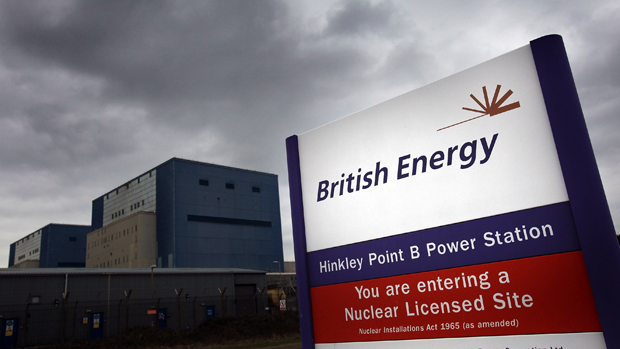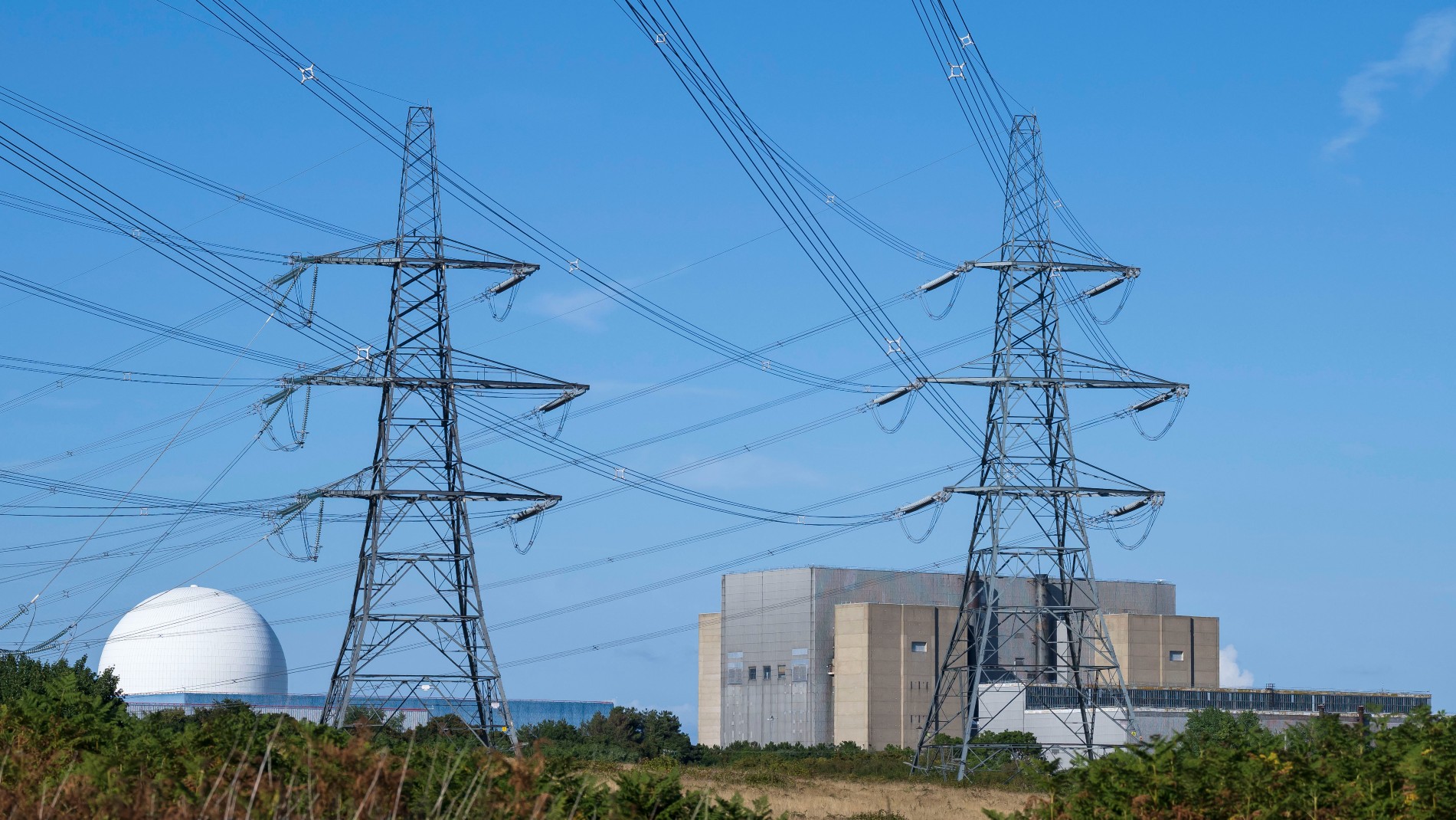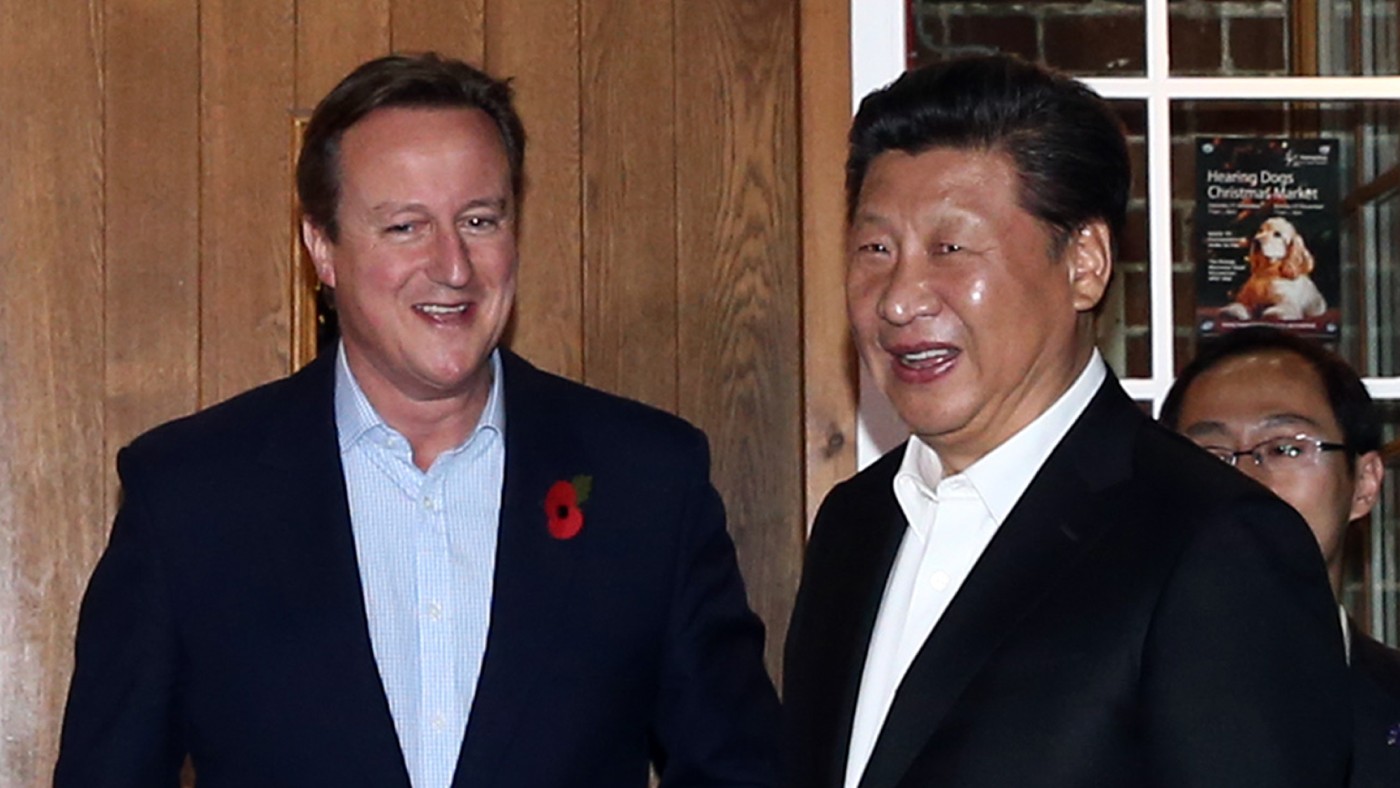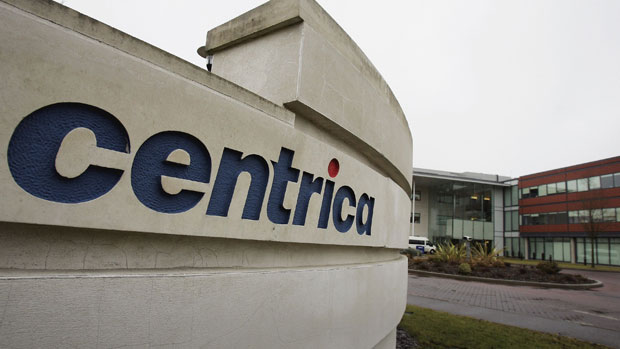Hinkley Point 'will cost public double the amount it should'
National Audit Office says nuclear project is 'risky and expensive' and has 'uncertain' economic benefits

A free daily email with the biggest news stories of the day – and the best features from TheWeek.com
You are now subscribed
Your newsletter sign-up was successful
Hinkley Point nuclear plant will go ahead after all
15 September
A controversial nuclear plant in Somerset, which would be the most expensive the world has ever seen, will now go ahead despite national security concerns.
Shortly after taking over from David Cameron, Theresa May put the brakes on the £18bn Hinkley Point project, causing tensions with China, a key investor in the project.
The Week
Escape your echo chamber. Get the facts behind the news, plus analysis from multiple perspectives.

Sign up for The Week's Free Newsletters
From our morning news briefing to a weekly Good News Newsletter, get the best of The Week delivered directly to your inbox.
From our morning news briefing to a weekly Good News Newsletter, get the best of The Week delivered directly to your inbox.
Having now agreed a new "golden share" deal with the lead developer, the French utility firm EDF, alongside proposals for new protections on UK infrastructure ownership, the government has finally given the project the green light.
The deal already had the backing of EDF and China General Nuclear, and both firms are expected to find the new terms acceptable.
In a statement, the Department for Business, Energy and Industrial Strategy said it would agree with EDF, through an "exchange of letters", the right to prevent the sale of the company's controlling interest prior to the plant's completion, scheduled for 2025.
Existing laws and a new legal framework will enable the government to continue to intervene to prevent the sale of critical infrastructure assets, including Hinkley Point, in the future.
A free daily email with the biggest news stories of the day – and the best features from TheWeek.com
This power will be exercised through a "special share" in all newly built plants, as well as a requirement for the intended sale of stakes in existing nuclear sites to be reported to the UK's nuclear regulator, which would have the power to step in.
While China is expected to welcome the approval, The Guardian says the new legal framework could yet be used to stop the country "investing more actively in developing plants at Sizewell in Suffolk and Bradwell in Essex".
Under a deal struck with former chancellor George Osborne, the Chinese were expected to invest in Hinkley and Sizewell and then solely develop and run the future reactor at Bradwell. Experts are concerned at the security implications of allowing a Chinese business access to the UK national energy infrastructure.
Opposition to Hinkley Point remains fierce. A petition said to contain 300,000 signatures will be handed to Downing Street today calling on the government to drop the project.
Many are critical of the guaranteed price of electricity generated at the plant, which at an inflation-linked £92.50 is almost three times the current wholesale rates. While customers will have certainty on their bills, the opportunity cost of lost discounts could run to as much as £30bn.
Crown estate wades into Hinkley Point row
15 August
A senior figure at the Crown Estate, the organisation that controls state-owned assets and that is owned officially by the Queen, has waded into the Hinkley Point row.
Weeks after the government announced a last-ditch delay to the £18.5bn nuclear project and amid an acrimonious diplomatic row that stretches from Paris to Beijing, the estate's energy director has called for a rethink on renewable energy alternatives.
In an article for The Guardian, Huub den Rooijen writes: "With the government re-examining the case for new nuclear reactors at Hinkley Point, it's a good time to reflect on recent breakthroughs in another low carbon technology: offshore wind."
He says offshore wind is already producing about five per cent of the UK's energy needs, a rate which should double by the end of this decade. With just one per cent of the UK's seabed having been developed and construction costs coming down dramatically, dragging eventual electricity prices lower, energy produced at sea from offshore wind and tidal power and overseas connectors, could hit 50 per cent by 2030, he adds.
"[By] 2025, industry and government expect UK prices to be comparable with new gas generation at about £85 per megawatt hour (MWh)," says Den Rooijen.
"In the Netherlands, there has been an even bigger step change… [and] the Dutch are now going to be paying the equivalent of about £80 per MWh. That is significantly lower than Hinkley Point at £92.50per MWh."
Den Rooijen steers clear of giving a view on Hinkley Point, or even directly linking his comments to the decision the government has to make. But he's not the first to bring up the benefits and lower costs of wind power compared to the most expensive nuclear project ever.
He's also not the first senior figure to get involved in a row that has drawn comment from the French ruling political party, labour unions on both sides of the Channel and both the Chinese ambassador and government.
Theresa May is thought to have called for a pause to Hinkley Point over security concerns relating to the deal, which will eventually see the Chinese co-investors build their own reactor on UK soil. That has not gone down well in China, which has threatened to pull £100bn of investment to the UK.
But campaigners say the renewables argument and concerns over the untested technology being deployed by EDF are reason enough to halt a development that is already running many years late.
Theresa May urged to abandon Hinkley Point
12 August
Prime Minister Theresa May is being urged to ditch the £18.5bn nuclear project at Hinkley Point, Somerset, altogether after the latest allegations against its Chinese developer.
China General Nuclear Power (CGN), which is funding a third of the cost of the plant, has been accused of stealing nuclear secrets from the US.
Paul Dorfman, a senior research fellow at University College London, told The Guardian the news added to "endless concern and discussion" among security experts and said a nuclear deal with China "is beginning to look like an Anglo-Sino bridge too far".
"No other OECD country would let China into its critical nuclear infrastructure, given its history of nuclear weapon proliferation," he said.
Dorfman also said May has already taken the "diplomatic hit" by announcing an 11th-hour delay to the project, which has prompted thinly-veiled threats from China over £100bn of inward investment into the UK.
Cover for abandoning the project – and preserving relations with China - could be provided by citing the untested French reactor technology, which is "over-cost and over-time where it’s being built in Finland and France", he added.
Dorfman's intervention is the latest call for the abandonment of the most expensive nuclear development ever.
Critics argue the guaranteed price for the electricity it will generate is too high, while environmental campaigners say investment should be diverted to renewable energies that do not produce hazardous waste.
Writing on Reuters, economic journalist Olaf Storbeck says offshore wind in particular is already generating electricity at a cheaper rate and could be online in "four years compared to at least a decade".
The case for offshore wind will be further enhanced by the news wind turbines in Scotland generated more than 100 per cent of the country's energy needs on Sunday, a landmark previously reached in Denmark and Germany.
Hinkley Point's Chinese partner accused of nuclear espionage
11 August
The Chinese state-backed nuclear agency which has a major stake in the Hinkley Point project is facing charges of espionage in the US.
China General Nuclear Power (CGN) and Szuhsiung "Allen" Ho, a naturalised American citizen, are accused of conspiring to steal US power industry secrets to speed up the development of the company's own reactors.
Ho is alleged to have recruited six experts in the US to extract sensitive information for CGN, for which he was said to be working as a "special adviser".
In a 2009 email to one of the alleged recruits, Ho said China "has the budget to spend" and wants to "bypass the research stage and go directly to the final design and manufacturing phase", reports The Times.
CGN is putting up a third of the £18bn cost of building Hinkley Point, in Somerset, in return for an ownership stake, a deal struck by former chancellor George Osborne.
It is also set to be involved in building a new fleet of nuclear power plants in the UK, including the first using its own designs to be constructed outside of the Chinese mainland.
That prospect has startled security experts, who believe China still represents a threat to the west. A last-minute delay in approving the Hinkley Point deal, which has triggered a diplomatic row, is thought to rest in part on these concerns.
Documents relating to the US allegations say CGN is controlled by China's state-owned Assets and Supervision and Administration Commission and ultimately by the State Council, which is referred to as Beijing's "highest government authority".
It adds that CGN's board of directors is "comprised of members of the Communist Party of China".
Ho is being held in prison and will appear at a bail hearing in Tennessee next week. He has been charged under a 1946 law designed to prevent the proliferation of nuclear weapons that the Times says has "never been used successfully before".
Hinkley Point nuclear project on brink of collapse
11 August
The contentious plan to build the world's most expensive nuclear power plant at Hinkley Point, Somerset, is on the brink of collapse, reports the Daily Telegraph.
"The whole saga has now become freighted with politics and misunderstandings in a three-way jostle between France, Britain, and China, with no outcome in sight that can please everybody," the paper says.
In the latest blow to the £18bn project, France's ruling socialist party has thrown its "support behind dissident trade union leaders and called for a fundamental review of the… venture".
Representatives of six trade unions on the board of EDF, the French utility leading the development, last week demanded it be put on hold after the UK government's 11th-hour decision to delay to review the plans.
News of the postponement came hours after the project had been formally backed by EDF's board. The unions say they were not informed of this by bosses who already knew of the delay and consequently the board vote was rendered "null and void".
Backing that view, the socialist party also raised questions over dealing with the UK post-Brexit.
"The whole relationship with Britain, whether political or economic, must be reviewed in light of its withdrawal from the EU, and a project as important as Hinkley Point cannot reasonably be exempted," it said.
The plant has also come in for opposition in the UK, not least because the developers are guaranteed a £90-per-hour price for the electricity generated - double current wholesale rates.
However, China, which is funding a third of the project cost as part of a plan to develop a fleet of new nuclear plants in the UK, including one using its own designs, is threating to pull up to £100bn of trade deals with the UK if Hinkley Point does not go ahead.
Beijing is particularly unhappy that there have been claims, including one from Theresa May's chief of staff Nick Timothy, that allowing China to control power plants threatens UK energy security.
Writing in the Financial Times, China's ambassador to the UK, Liu Xiaoming, sags "the China-UK relationship is at a crucial historical juncture" and that "mutual trust should be treasured".
Adding that Chinese "companies have invested more in the UK than in Germany, France and Italy combined" in the past five years, he says: "I hope the UK will keep its door open to China and that the British government will continue to support Hinkley Point."
-
 The Olympic timekeepers keeping the Games on track
The Olympic timekeepers keeping the Games on trackUnder the Radar Swiss watchmaking giant Omega has been at the finish line of every Olympic Games for nearly 100 years
-
 Will increasing tensions with Iran boil over into war?
Will increasing tensions with Iran boil over into war?Today’s Big Question President Donald Trump has recently been threatening the country
-
 Corruption: The spy sheikh and the president
Corruption: The spy sheikh and the presidentFeature Trump is at the center of another scandal
-
 Great British Nuclear: one step forward to take two steps back?
Great British Nuclear: one step forward to take two steps back?Talking Point New flagship agency to deliver UK’s next generation of reactors delayed as nuclear output is set to decline further
-
 China General Nuclear: banned from Britain?
China General Nuclear: banned from Britain?feature The brief ‘golden era’ of Sino-British relations has turned ‘radioactive’
-
 Centrica to cut 4,000 jobs and sell UK nuclear holdings
Centrica to cut 4,000 jobs and sell UK nuclear holdingsSpeed Read Beleaguered British Gas owner lost 1.4 million customers last year